Client:Apprio
Industry:Healthcare
Region:North America
Apprio uses UiPath to reduce average daily claim backlog by 96% for large, non-profit healthcare system

90%
reduction in its average daily claim backlog
98.5%
payment authorization rate, leading to fewer denials and less rework
$100 million
reduction in dollars outstanding to top four payers
42% to 59% of claims
for the top four commercial payers moved from a 60+ day aging to 0- to 30-days aging
Client Overview
Apprio is a leading provider of smart automation solutions to the healthcare and emergency management industries. Apprio’s solutions support the efficient delivery of healthcare and emergency services to patients in commercial and federal settings by reducing the costs of operations, improving revenue, and reducing expenses.
Most companies start by thinking about their own processes when they consider the benefits of automation. They think about how automation can make their operations more efficient. For Apprio, the benefits of automation were so great that they added the UiPath Business Automation Platform to the services they offered their clients.
Apprio was an early adopter of automation solutions—finding them invaluable for streamlining Apprio's patient enrollment and eligibility services. Those early-stage automations proved so successful, Apprio opted to expand its automation capabilities. They turned to AI Computer Vision, which offers a scalable process for ingesting massive amounts of data from different systems.
The pairing of AI Computer Vision with Apprio’s suite of healthcare services makes for a compelling success story. With UiPath technology, Apprio quickly provided automation services for one of its biggest healthcare clients. These services helped the client with insurance verification, authorization determination, and managing submissions and denials. The results were shorter time-to-collection, reduced operating overhead, and better managed claims processes.
We saw how automation enhanced our operations. So, we partnered with one of our hospital clients to start their own automation journey.
Darryl Britt, President and CEO, Apprio
And one of the areas in greatest need of transformation was revenue cycle management (RCM).
Targeting a client’s revenue cycle management process
RCM is how healthcare providers account for and receive patient revenue. It’s a complex process that involves multiple payers and dozens of steps. But the opportunity for automating many of those process steps was too great for Apprio to ignore.
Apprio’s client faced many of the same headwinds that other healthcare enterprises face when considering whether to implement new technologies. First, there was the challenge of finding IT people with healthcare finance skills. Organizations need professionals with expertise in both areas for RCM automation to succeed.
Second, healthcare organizations tend to have long lists of technology needs. They must make hard choices, and at times, technologies like automation can take a backseat to other projects.
Finally, there’s the ever-present issue of budget. Most healthcare providers can’t match the industry’s giants, and justifying an investment in automation can be a challenge.
Apprio solved these issues by leveraging their experience with the UiPath Business Automation Platform, internal automation successes, and their knowledge in revenue cycle management to offer an affordable, end-to-end managed services solution to reduce administrative burdens.
We go to our clients and say: ‘We are going to use this phenomenal industry-leading technology from UiPath. And we are going to learn about your processes, integrate these requirements into a design, develop automations, continuously improve, and bundle everything in a service.
Will Hamilton, Chief Product Officer for Automation, Apprio
For Apprio’s client, the impact of its early automation projects built momentum for broader adoption.
It was the proverbial case of a pebble in a pond. We started with a couple of simple automations, and four years later, we’ve implemented hundreds of automations across the revenue cycle management process.
Will Hamilton, Chief Product Officer for Automation, Apprio
Apprio’s client realized a long list of improvements, including:
Decreased outstanding accounts receivables
Improved cash collection timeframes
Standardized workflow models for key RCM functions
More effective use of existing RCM human capital
Reduced impact of fluctuating workloads
Workforce stability due to improved resilience
Automating RCM led directly to increased worker satisfaction by reducing repetitive tasks. Claims review personnel, for example, could spend more time reviewing complex claims that required expert analysis and decision making, which helped make work more engaging and less routine.
Automation alone hasn’t been the only driver of this success—there’s more to the equation than just industry-leading technology. Apprio’s industry expertise offers clients a fresh perspective on their processes and helps weed out inefficiencies. David House, Chief Revenue Officer, put it this way:
One of the reasons why we're successful is that we don't just support our clients to the point of automation activation. We continue to work with them, leveraging agile principles to further develop their processes into a more mature state.
David House, Chief Revenue Officer, Apprio
Partnering to deliver automation to a vital industry
So, what happens when two companies discover that they work so well together that the collaboration creates a whole greater than the sum of its parts?
For Apprio and UiPath, the answer was to form a partnership to help midmarket healthcare organizations automate many of their critical revenue cycle processes. They jointly created a set of managed services solutions tailored to meet healthcare industry-specific needs and challenges.
We are seeing increased demand from customers who want prebuilt or full-service solutions from Apprio that make implementing, maintaining, and scaling automation practices much more simplified, convenient, and cost-effective. The managed services model provides customers with immediate return on investment while benefiting from our deep automation expertise in license management, implementation, and ongoing development and support.
Kali Durgampudi, President and CEO for Automation, Apprio
The true meaning of ‘patient-first’
Though automating RCM specifically targets the back-office operations of the healthcare industry, that doesn’t mean it’s not contributing to an increase in the quality of patient care. By making healthcare organizations more efficient in areas like RCM, Apprio and UiPath are helping them stay focused on what matters most: the patient.
Our hope and wish are that a good portion of the cost savings gets redirected back into direct patient care. Someday, it's going to be our family members, our parents, and our aunts and uncles who will be in a hospital bed. That’s why we never lose sight of our patient-first approach.
Rodney Napier, Chief Product Officer EnrollmentMax, Apprio
Related case studies
Ready for your own case study?
Speak to our team of knowledgeable experts and learn how you can benefit from RPA.





